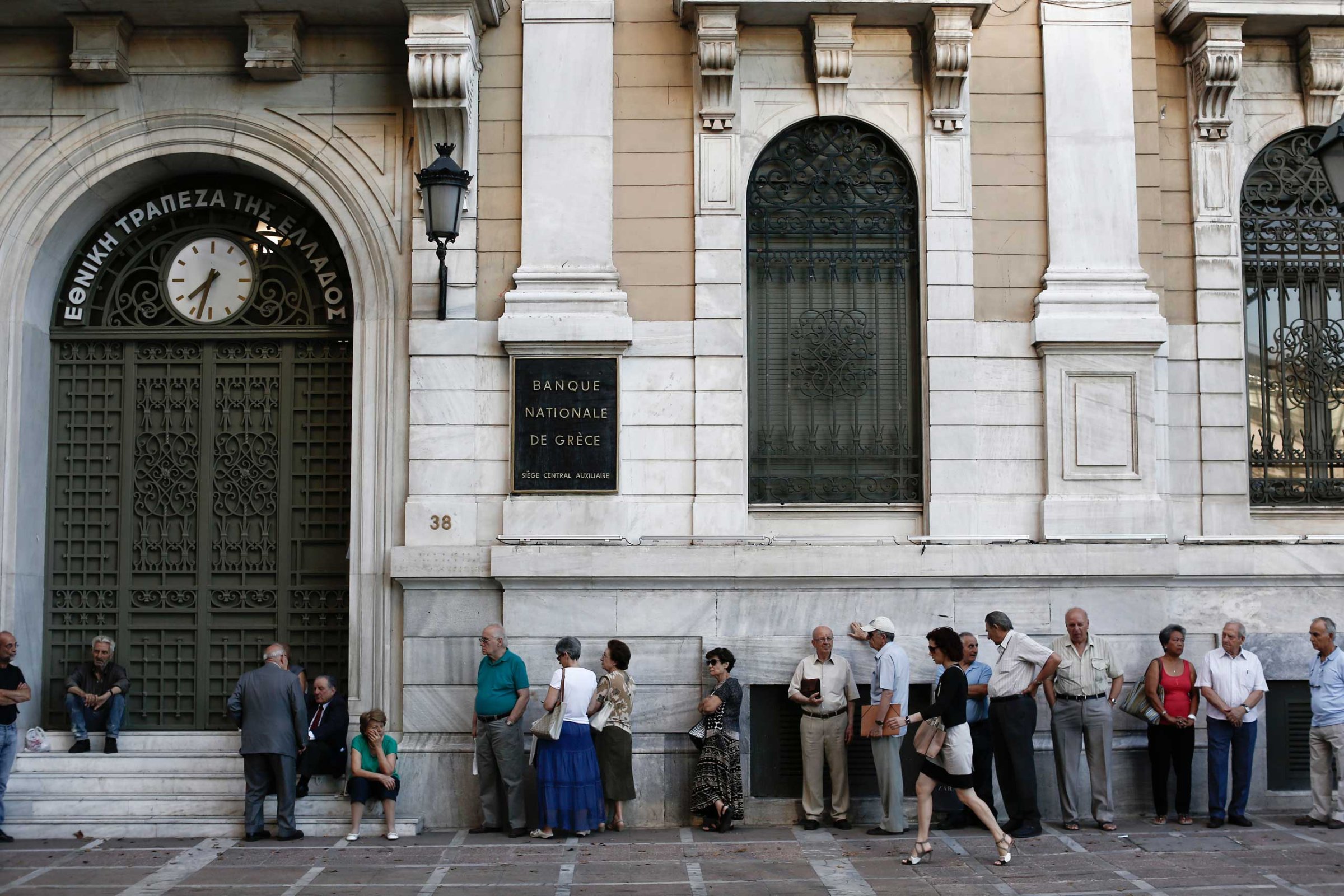
Greece and the European Union may have temporarily staved off disaster. But while economists agree that structural reforms are the right long-term decision, many worry that austerity will impose considerable short-term pain on Greek citizens and further depress the country’s struggling economy. Signs suggest that financial markets and big business would welcome the agreement, but ordinary Greeks will continue to pay a heavy price as the Greek economy continues to contract.
What can America learn from this? At first glance, liberals and conservatives seem to draw opposite lessons. The left sees the Greek disaster as evidence that austerity and belt-tightening are unfair and painful. Meanwhile, the right sees the disaster as a lesson in the need for fiscal restraint and the dangers of big deficits.
Both arguments get something right. First, as I explain in my new book The Conservative Heart, blunt austerity is disastrous for the most vulnerable. Suicides have spiked in Greece since the financial crisis as unemployment rates have surged upward. Rates of homelessness and food insecurity have risen. Just last week, the New York Times reported that many social welfare programs have been a casualty of Greek spending cuts.
But this terrible austerity is not the natural result of tightwad governance and obsession with belt-tightening. Rather, it’s the inevitable outcome of runaway spending, fueled by an ever-growing desire to expand the social safety net across the entire Greek society.
So what is the takeaway lesson for the United States? If social safety net programs metastasize into expansive middle class entitlements, the poor get left behind when it comes time to pay the bill.
Virtually all Americans agree that we need a functioning and financially stable safety net for the truly indigent. Yet a Greek-style welfare state, overextended and insolvent, is the last thing we want. What does a real solution look like?
In The Conservative Heart, I offer three pillars for a conservative approach to the safety net. First, conservatives need to declare “peace” on the safety net in principle. A myth has spread in recent years that conservatives are opposed to any kind of social support. This is plainly untrue. From the famed economist Friedrich Hayek to President Ronald Reagan, conservative heroes have always championed a legitimate government role in providing vulnerable people with basic necessities of life when they are out of work or unable to provide for themselves. This is a conservative principle, and all conservatives should celebrate it.
But this is where the second key principle comes in: the safety net must be carefully targeted towards the poor and indigent. There is a huge difference between genuine social assistance that supports people who truly aren’t making it and a sprawling web of government programs that try to insure middle-class people against all the risks of life. The former encourages earned success; the latter crowds it out. The former makes the economy more dynamic and opportunity more abundant; the latter discourages Americans from remaining in the workforce. The former is financially sustainable; the latter destroys the very economic growth it needs to keep the checks coming.
Third and finally, the safety net must encourage and require work wherever possible. Of course, there are Americans who truly cannot work, and nobody is suggesting yanking the rug out from beneath them. But we are a long, long way from every able-bodied American having access to meaningful work. Only 60-some percent of Americans are even in the labor force at all. And for many citizens, poorly-designed disability insurance programs have morphed into a permanent unemployment benefit that they were never intended to provide.
Human beings are made for work. A wealth of social science shows that, from the standpoint of happiness, government benefits are a terrible substitute for the dignity that comes from working hard and earning one’s own way. This isn’t some conservative cliché. It’s a truth about human nature that is backed by the best research. Americans deserve the opportunity to work—and smart welfare policy has to nudge people in that direction.
These three principles—declare “peace” on the safety net, target spending on the indigent, and insist on work—can form the cornerstone of a New Right movement that dedicates itself to fighting for poor and struggling people. And more important, it will ensure we avoid becoming a Greek tragedy ourselves.
Arthur C. Brooks is president of the American Enterprise Institute, where he is also the Beth and Ravenel Curry Scholar in Free Enterprise. His new book, The Conservative Heart: How to Build a Fairer, Happier, and More Prosperous America, was released on July 14, 2015.
More Must-Reads from TIME
- Cybersecurity Experts Are Sounding the Alarm on DOGE
- Meet the 2025 Women of the Year
- The Harsh Truth About Disability Inclusion
- Why Do More Young Adults Have Cancer?
- Colman Domingo Leads With Radical Love
- How to Get Better at Doing Things Alone
- Michelle Zauner Stares Down the Darkness
Contact us at letters@time.com